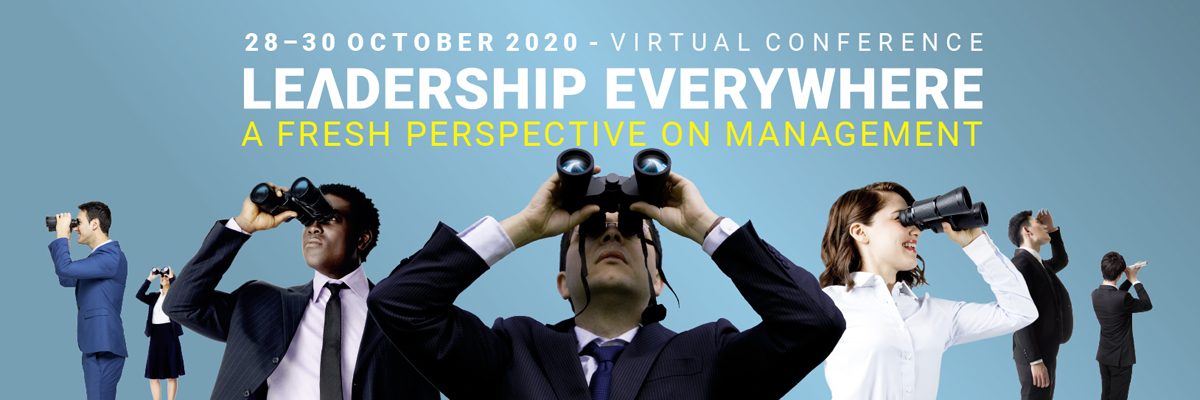
Management is about controlling, administering, and planning. It is a centuries old discipline derived from the need to control a predictable process based on production where the parameters of the market and environment move slowly.
It came to its peak in the last century with the rise of the machine. Machines fed the management mindset of control and predictability, and most fluctuations in desired results were put down to the problem of having to employ people to operate the machines.
People are not machines
Huge amounts of effort have been expended in trying to control the unpredictability of people and make them more like machines. Latterly, there has been a realisation that people don’t function well if they are treated as machines yet there is still a wide gulf between realisation and practical applications as evidenced by the annual Gallup poll showing such dissatisfaction with work.
More and more effort is expended in measuring and controlling, epitomised by the rise in the popularity of business schools, most of which seem to be in the business of business rather than in the business of learning. More and more highly qualified managers are being churned out only to make a diminishing impact on the value, quality, and economic output of work.
Rewarding failure
The systems of rewards in the current capitalist economies perpetuate these failures. This starts with the strange concept of shareholder value such that returns must always increase, there should be some predictability, and top management is rewarded excessively for reaching short-term goals, so executives reward management when managers help achieve executive goals.
This perverse view of business and humanity demonstrates the same logic of business improvement through cost-cutting. It works well the first time and our logic tells us it will work repeatedly even though results tell us differently. Yet we still do it and then are surprised at the diminishing returns. We don’t think it might be that our assumptions need to be tested or that we are poor model makers.
No more studies – please!
We have plenty of studies on how workers are dissatisfied in their work environment, how managers instil cost-cutting services as a Pavlovian reaction to most challenges, etc. We know all these issues. We don’t need any more studies given that the human mind hasn’t evolved too much over the last 40,000 years. We need to recognise that we can’t fit people to things: we must fit things to people.
We need to fix this.
Replace Managers with Enablers
This failure to advance management learning, coupled with the unpredictability and speed of change in business, means that the need for controlling along parameters which no longer apply has long gone, and so has the need for a manager.
What is needed instead is an enabler. A manager merely has knowledge, either through experience or retaining the sources of knowledge, and can, or soon can, be replaced by AI. An enabler exercises judgement along the lines of the interfaces between human beings – listening, empathising, understanding, changing parameters to fit the circumstances – and cannot be replaced by AI. They enable business to fulfil its function of serving a customer. Not serving customers as a generic group. A manager is served by the team: an enabler serves the team. Only then can the team properly serve the customer. That implies the enabler-manager is a member of the team. It is not her team – that would imply ownership not membership.
Treat people like individuals
That means treating people completely differently. People means customers, co-workers and suppliers. It means transparency, trust, inclusivity and turning the established hierarchy on its head. So that the new enabling function assists all team members do what is needed to satisfy the customer. This needs a proper conversation throughout the value chain to meet everybody’s expectations. Enabling is facilitation, which can mean coaching, can mean some problem solving, but certainly means giving everybody the tools and environment to do their best.
It means assuming the best, not planning for all the possible ways for failure, most of which never happens. And only serves to telegraph to the team that failure is what is expected of them.
Trust
It’s a high trust model. Contrast that with the excessive internal regulation and process just in case some less than perfect result happens – a no trust model which brings its own reward, evidenced by the Gallup poll. If a high trust model doesn’t work in your situation, you have two choices. You replace the people with machines or you evaluate how you are running your business. If you can’t trust your people, you have employed the wrong people, or they don’t trust you. The trust model works both ways.
Relationship or transaction?
It’s also a learning environment for everybody including your customer. And it becomes an environment full of relationships instead of transactions. Transactional work produces employees, customers and suppliers who are more than happy to jump ship. Relationships are much stickier and allow for lapses from time to time, if they are put right transparently and quickly.
After a day’s work, we go home, and transform into our Doctor Jekyll persona, the real person. Someone who cares about the people in their home environment, spends time without counting the cost such that the people around her know their best interests are at heart. Yet so much work is being done by our other selves – Mr Hyde enters the workplace at 9am and leaves again at 5pm. In the right working environment it’s Dr Jekyll who walks through that door.
Enablers are engaged with their true selves, and that authenticity is apparent to team, customers and suppliers.
Judgement work is the new Knowledge work.
Enabling is the new Management
Serving is the new Leadership
About the author:
Nick Hixson is a business enabler and accountant, helping small and medium size business in strategy, leadership, management and team engagement. He also moderates the Drucker blog series.
This article is one in a series related to the 10th Global Peter Drucker Forum, with the theme management. the human dimension, taking place on November 29 & 30, 2018 in Vienna, Austria #GPDF18
This article first appeared in the Drucker Forum Series on Linkedin Pulse

